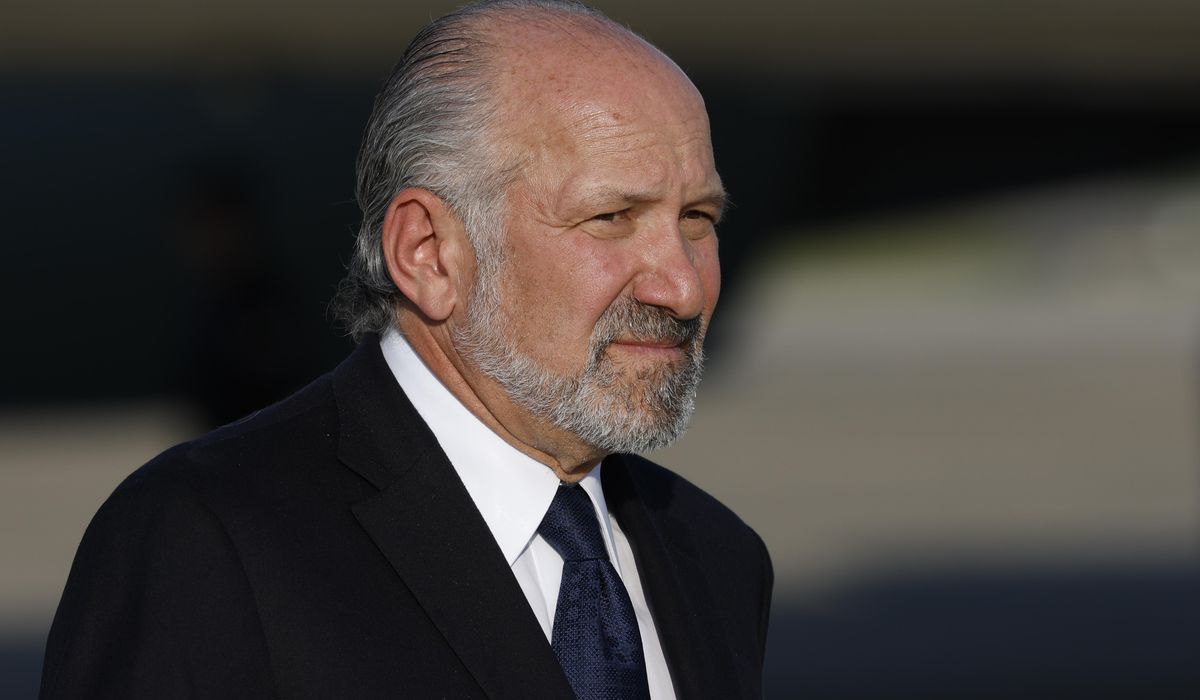


The Trump administration has taken a stake in chipmaker Intel and steel and mining companies, so Commerce Secretary Howard Lutnick says taxpayers should get at least half the proceeds from universities that use public support to invent products and secure patents.
“The scientists get the patents, the universities get the patents, and the funder of $50 billion — the U.S. government — you know what we get? Zero,” Mr. Lutnick told Axios’ Mike Allen.
Mr. Lutnick said clawing back money would be Business 101.
“If I gave them 100% of their money, I would get half the profits, with the scientists,” he said. “I think if we fund it and they invent a patent, the United States of America taxpayer should get half the benefit.”
The plan is the latest chapter in Mr. Trump’s unusual approach to economic governance. He’s making deals that allow Uncle Sam to take an ownership stake in private businesses receiving government support — and the Treasury to pocket some of the profits.
Intel, a massive but struggling chip manufacturer, recently agreed to give the U.S. government a 10% equity stake in the company in return for the funding promised under President Joseph R. Biden’s 2022 law to bolster America’s semiconductor industry.
The Trump administration is delving into the college space. Mr. Lutnick last month sent a letter to Harvard University demanding a list of patents that were developed with taxpayer money. He wants to ensure that patents comply with intellectual property laws and benefit American taxpayers.
He plans to send a similar letter to the University of California before extending the reach of the campaign to other colleges.
Mr. Trump’s push to take a government stake in private entities is making some people uncomfortable.
Sen. Rand Paul, Kentucky Republican, has objected to Mr. Trump’s intrusion into businesses.
“Once the government gets involved in the free market, there is no longer fierce competition that breeds excellence,” Mr. Paul wrote on X. “It’s a big mistake to have the government own things or have stakes in businesses.”
Besides Intel, Mr. Trump arranged a “golden share” for the government in U.S. Steel as part of its merger with Japan’s Nippon Steel. The Defense Department also took a stake in MP Materials, which mines for rare earths.
Further, Trump officials are debating whether American taxpayers are getting a proper financial benefit from defense contractors that rely on federal contracts.
The approach is raising eyebrows, with some top investors likening it to socialism or China’s practice of intertwining its central communist government with the private sector.
The university idea, in some ways, is an extension of Mr. Trump’s push to scrutinize colleges’ diversity programs and other behavior. He’s threatened to withhold funding from top schools, resulting in negotiations and deals between the colleges and the administration.
• Tom Howell Jr. can be reached at thowell@washingtontimes.com.
